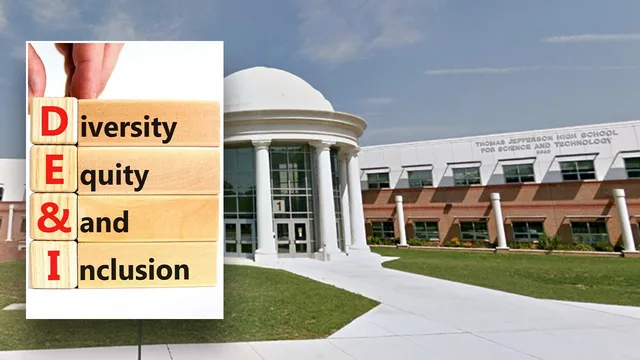
Justice Department probes Virginia school's admissions discrimination against Asian Americans
2025-05-22 21:13- The Department of Justice is investigating admissions practices at a Virginia high school over discrimination claims against Asian American applicants.
- The investigation follows a referral from the Virginia Attorney General, who found reasonable cause to believe discrimination has occurred.
- This scrutiny ignites debates around affirmative action and admissions policies in schools across the United States.
Express your sentiment!
Insights
In the United States, the Justice Department began a civil rights investigation into the admissions practices of Fairfax County Public Schools, particularly concerning the highly ranked Thomas Jefferson High School for Science and Technology. This investigation was initiated after a referral from the Virginia Attorney General, Jason Miyares, who determined that there is reasonable cause to believe that the school district has discriminated against Asian American students in its admissions policies. Previously, the school had faced numerous allegations regarding its admissions process, which was believed to have been altered to decrease the number of Asian American students admitted. The controversy surrounding the admissions policy escalated when, in 2021, a group of parents filed a lawsuit claiming that the changes were specifically designed to exclude their children, who made up around 70% of the school's enrollment. The lawsuit led to a federal district court ruling in favor of the parents, stating that the school’s new admissions policy was racially discriminatory. However, this ruling was later overturned by a federal appeals court, which argued that the parents did not provide sufficient evidence to prove that the policy had a disparate impact on Asian American students or that it was adopted with discriminatory intent. Despite the appellate court ruling, the investigation by the Justice Department marks a significant move in the ongoing debate regarding affirmative action in education and its implications for admissions processes across the nation. The Supreme Court has previously ruled against similar policies in cases against Harvard University and the University of North Carolina, prompting calls for schools to adopt
Contexts
The investigation of civil rights in education admissions policies has emerged as a critical area of focus for ensuring equitable access to higher education. These investigations seek to address concerns regarding discriminatory practices that may disproportionately affect students of certain racial, ethnic, or socioeconomic backgrounds. Through a meticulous examination of admissions data, methodologies, and institutional practices, the aim is to uncover patterns of inequity and to drive systemic change within educational institutions. Such investigations often stem from complaints lodged by individuals or advocacy groups who perceive that admissions procedures are biased or unjust. The findings from these inquiries can lead to policy revisions, increased transparency, and ultimately contribute to a more inclusive academic environment that respects and nurtures diversity among student populations. In recent years, civil rights investigations have been increasingly scrutinized within the context of holistic admissions processes, which consider a wide range of factors beyond standardized test scores. Proponents of these methods argue that they allow for a more comprehensive evaluation of a student's potential, including personal experiences and achievements. However, critics warn that these subjective elements may introduce their own biases into the process, making it essential to assess whether the overall impact aids or hinders fair access. Moreover, a significant dimension of these investigations is examining the role that legacy admissions, gender biases, and the influence of socio-economic status play in determining waiting lists and, ultimately, acceptance rates. Furthermore, federal and state regulations around admissions policies have evolved, reflecting society's growing acknowledgment of the need for diversity and inclusion in educational spaces. For example, the Department of Education's Office for Civil Rights (OCR) has undertaken a proactive stance in reviewing admissions practices, especially in highly competitive institutions, to ensure compliance with Title VI of the Civil Rights Act of 1964. This law prohibits discrimination on the basis of race, color, or national origin in programs and activities receiving federal financial assistance. Consequently, institutions are compelled to adopt policies that promote inclusion and eliminate barriers that may systematically disadvantage certain groups. The implications of these civil rights investigations extend beyond the institutions themselves, influencing broader societal conversations about equity and justice in education. As communities become more diverse, the expectations for schools and universities to reflect that diversity in their admissions processes only intensify. Findings from these investigations can lead to policy shifts within institutions, establishing new norms for transparency and accountability. As debates on affirmative action and race-conscious admissions continue to unfold in the legal arena, ongoing civil rights investigations will play a pivotal role in shaping the future landscape of education in the United States, ensuring that admissions policies align with the ideals of equality and fairness.